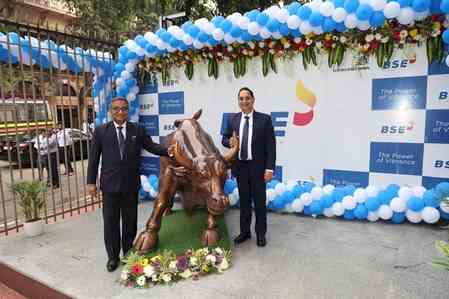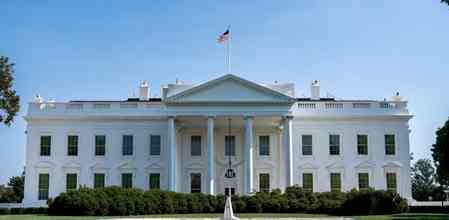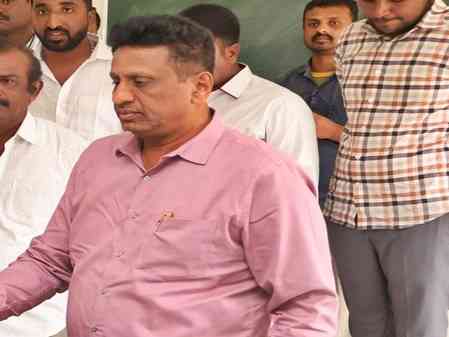Post Budget-2024 Quotes From Industry Leaders-2

“The Union Budget has articulated nine strategic priorities aimed at driving robust economic growth, create significant job opportunities and improve the employability of youth. Maintaining a fine balance between the requirement of energy transition & needs of energy security, is commendable. By investing in innovative and clean technologies, the aim clearly is to shape a dynamic, resilient, and future-ready Indian economy.”
Prashant Ruia, Director, Essar Capital.
“It is very heartening to see that the budget focuses substantially on focus important priorities namely agriculture, women, youth and poor. The emphasis on the aforesaid areas will put us on a robust path towards holistic development and support the journey of our country of being the third largest economy as envisioned by the Prime Minister under the roadmap for ‘Viksit Bharat’.
I would like to welcome the attention given to boost rural demand through the focuses allocation of Rs 1.54 lakh crore to the agriculture sector particularly for entry level tractors & two wheelers, which is vital to Indian small farmers. On the same note, significant increase in allocation towards MNREGA is a very welcome step.
Given our nation’s success with the digital public infrastructure in transforming farming through crop advisory & market prices, as a private sector initiative under CSR, we would be happy to partner closely with the Central and State governments to take these initiatives forward.
On a segment of the economy which is vulnerable to the vagaries of climate, agriculture research, release of new high-yielding climate resistant varieties and improving irrigation will aid in building resistance which is sustainable.
My special word of compliments to the government for their sustained efforts in continuously ensuring higher minimum support prices (MSP) for all major crops with 50% margin over the costs, is a clear demonstration of the “Atmanirbharta”.
I sincerely commend the finance minister for presenting a progressive, growth oriented and inclusive budget.”
Mallika Srinivasan, Chairman and Managing Director, TAFE
"The Union Budget 2024 is a transformative step toward strengthening India's economic fabric, emphasizing employment, skilling, and MSMEs. The allocation of ₹2 lakh crore for job and skill development schemes over the next five years will empower the youth and foster a skilled workforce, essential for driving innovation in the fintech sector. The budget's focus on social justice and inclusive human resource development ensures growth benefits reach every segment of society.
For the fintech industry, simplified tax exemption regimes and TDS adjustments will streamline operations, creating a more favourable business environment. Abolishing the angel tax for all classes of investors is a ground breaking move to bolster the Indian start-up ecosystem, boost entrepreneurial spirit, and support innovation. Initiatives to develop cities as growth hubs and significant investments in urban housing and infrastructure will stimulate economic activities and provide a robust foundation for sustainable growth. Enhanced support for MSMEs, including the new credit guarantee scheme, will bolster the backbone of our economy, driving innovation and job creation. This budget sets a promising trajectory for inclusive growth, positioning India as a resilient and forward-looking economy."
Jayesh Jain, Group CFO, Balancehero India
“We welcome the forward-looking and growth-oriented Union Budget 2024, presented by the Finance Minister. As part of India's new blueprint for holistic growth, the increased focus on urban development, infrastructure, innovation, and next-generation reforms will have a multiplier effect on the economy.
With a strong emphasis on energy security, industrial development, and MSME support, India is poised for sustainable growth and development.
Agriculture and Allied Sectors: The Government’s substantial allocation of ₹1.52 lakh crore towards agriculture and allied sectors is to be lauded. Initiatives such as natural farming, pulses, and oilseeds missions, along with the development of digital public infrastructure, are crucial for enhancing productivity and sustainability.
Enhanced focus on food security, irradiation, and safety testing labs will revolutionize India's food landscape, ensuring quality and accessibility.
Urban Development and Infrastructure: The budget's emphasis on urban development and infrastructure growth is a significant step towards driving economic expansion. The focus on smart cities and industrial development presents ample opportunities for our energy-efficient solutions.
Energy Security and Industrial Development: We welcome the government's prioritization of energy security and industrial development, which aligns perfectly with our expertise. Danfoss India is poised to play a vital role in India's green transition through our innovative energy-efficient technologies. We are committed to supporting industrial growth while ensuring that it is sustainable and environmentally friendly.
Climate Resilience: The government's commitment to climate resilience and sustainable growth is commendable and the focus on climate-resilient agriculture and flood mitigation measures underscores the government's dedication to environmental sustainability
Leveraging our nine plus decades of expertise, we are committed to driving sustainable development and innovation in India's green transition. We are eager to actively participate in these transformative initiatives, deploying our energy-efficient technologies to create a more sustainable future.”
Ravichandran Purushothaman, President, Danfoss India
“The budget marks a pivotal moment for India's education sector, reflecting a robust commitment to enhancing opportunities for the youth. The allocation of Rs. 1.48 lakh crore for education, employment, and skilling underscores a strategic shift towards holistic development. The introduction of financial support for loans up to ₹10 lakhs for higher education, particularly for those excluded from existing government schemes, is a game-changer. The e-vouchers offering a 3% annual interest subvention for one lakh students will make higher education more accessible and affordable, potentially transforming countless futures.
The proposal to open working women hostels in collaboration with industry underscores a strong commitment to supporting female workforce participation and creating a more inclusive environment for women.
The budget's focus on upskilling, with a revised Model Skilling Loan scheme and the upgrading of 1,000 industrial training institutes, reflects a clear intent to enhance employability. By aiming to skill 20 lakh youth over the next five years, this budget sets the stage for a more skilled, competitive workforce, ultimately driving economic growth and innovation”
Dr. Jaskiran Arora, Dean- Education Quality, BML Munjal University
“We are pleased with the Government’s initiatives in support of MSMEs, manufacturing and infrastructure. These provisions will certainly further India’s ambition of becoming a manufacturing powerhouse and have a multiplier effect on the economy, including the logistics and trade sectors. Notably, the Government’s plan to establish E-commerce Export Hubs for MSMEs and traditional artisans will facilitate the international growth of these small businesses by easing the export process. Furthermore, the allocation for the development of industrial parks under the National Industrial Corridor Development Programme will enhance India’s status as a premier manufacturing destination by creating cutting-edge manufacturing facilities. In turn, all of this will spur international trade. We endorse the Government’s vision to create a Viksit Bharat and are well positioned to be their partners in this endeavour.”
R.S. Subramanian, Senior Vice President & Managing Director, DHL Express India
“This year’s Union Budget has opened new doors to development, specifically for domestic and inbound tourism. With the focus on special development funds/ programs for the socio-cultural-religious potential of iconic temple corridors including Gaya’s Vishnupad & Mahabodhi temples into world-class pilgrim and tourist destinations (to be modelled on the success of the Kashi Vishwanath temple corridor), the Government of India’s intent is encouraging. Additionally, the comprehensive development of the Rajgir Jain Temple site; rejuvenation of the historical gem of Nalanda & Nalanda University into a major religious-tourist centre, would have a multi-pronged impact. While positioning India as a vibrant global tourism destination, it will also accelerate job creation and economic opportunities for allied sectors.
The Budget also appreciated the underleveraged potential of Odisha's tourism industry by supporting the state’s rich heritage-history, spirituality, craftsmanship and natural beauty.
Recognizing the high potential domestic cruise segment, the Union Budget announcement proposed a simpler tax regime to support/incentivize foreign cruise companies operating in India’s waters.
We’re optimistic about the significant allocation of INR 11.11 lakh crore (constituting 3.4% of India's GDP) towards infrastructure development. The development of road, rail, air, and waterways will ensure a boost to access/connectivity and affordability, and force multiplier benefits for tourism and allied sectors.
When introduced, TCS was considered disadvantageous to salaried employees as their cash flows were negatively impacted. Post the Budget announcement, salaried employees can now avail of immediate credit of TCS paid on account of their foreign travel - against TDS on salary, enhancing the purchasing power of Indian consumers.
The discontinued SEIS scheme should have been reinstated, as this is meaningful towards encouraging inbound tourism, foreign exchange receipts and a force multiplier for employment generation.
We are disappointed to note that key pillars in India’s Tourism agenda - Aviation & Hospitality were not mentioned as part of the Budget and both standardisation of GST rates on hotel tariffs to 12% and the reduction of ATF remained unaddressed.”
Madhavan Menon, Executive Chairman, Thomas Cook (India) Limited (Thomas Cook, SOTC, Sterling Holidays and TCI)
“Extremely disappointed with proposals. Not much for MSE’s but they could have taken steps towards formation of Steel Regulator, Resorting the CLCSS Scheme, Reduction in import duties on machinery to boost manufacturing, provisions of Social Security for tax payers etc.
There is no fresh subsidy or support in the Budget fir the MSME, Especially, there is no withdrawal of Section 43B regarding payments to MEME concerns within specified time which is actually hurting the MSME Units. Further, tax rate on short term financial assets has been increased from 15% to 20%. Similarly on long term financial assets, tax rate has been increased from 10% to 12.50%. On the positive side, there is an increase in standard deduction under the new tax regime from 50,000/- to 75,000/-. Similarly, tax slabs have been revised to give some relief under the new tax regime. Finance Minister admitted that direct tax collection was more than doubled, GST Collections gone up but in spite of that no relief given to MSE’s. However, Finance Minister gave adequate benefit to big houses corporates by maintaining their income tax slab to 22%, earlier it was 22% + surcharge and it come to 26% but corporates are the major beneficiaries as their slab came down to 22% as compared with MSE’s whose income tax slab is 30% plus surcharge when you cross certain limit of income.
It is evident that this Govt. is concerned about Corporates & has given major relief to corporates. Govt has no soft corner for MSE’s or common man. To sum up we can say the budget has nothing for MSE’s or common man & it has disappointed us. Though some schemes such as Mudra loan enhanced from 10 Lakh to 20 Lakhs, Credit support to MSMEs during stress period, Credit Guarantee Scheme fpr MSMERs in the manufacturing sector but these schemes are proved to be on paper only & never implemented by Banks.
Narinder Bhamra, President, Fastener Manufacturers Association of India
"Many urban housing development projects would need short or mid - term financing, which can be filled up by financial institutions. This will give a fillip to India's untapped financing market in the real estate sector. Further, the rental housing scheme for industrial workers would also accelerate rental housing projects."
Kuldeep Jain, Founder and CEO, Build Capital
“We welcome the Finance Minister's progressive budget, which demonstrates a strong commitment to education, employment, and skilling with an allocation of ₹1.48 lakh crore.
This significant investment highlights the government's dedication to nurturing talent and fostering growth. The introduction of financial support for higher education will help make higher education more accessible. Furthermore, the emphasis on developing digital public infrastructure applications will drive productivity and innovation, benefiting various sectors such as education and health.
We call for clear guidelines on attention towards creative avenues to fund and promote a mandated Industry-Academia Partnership for mutual benefit. This will help boost the initiative to skill one crore youth through internships with top companies and the Prime Minister’s Internship program to provide valuable practical experience and skill development.
Overall, this budget aligns with our vision of ‘Viksit Bharat,’ paving the way for a robust and inclusive development trajectory.”
Rahul V. Karad - Managing Trustee, MAEER, Executive President, MAEER’s and MIT World Peace University & Chief Initiator, MIT SOG


 City Air News
City Air News 










